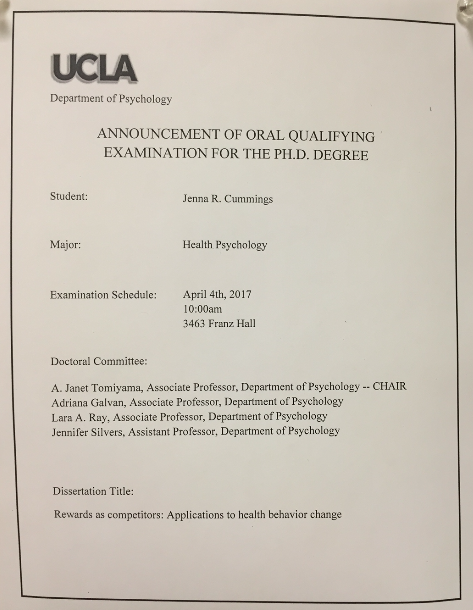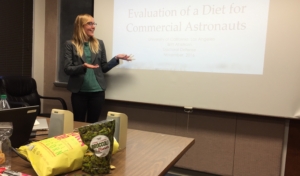This past weekend, the DiSH lab attended the 18th Annual Society for Personality and Social Psychology (SPSP) Convention in San Antonio, TX. We also attended the Social, Personality and Health (SPH) Preconference, and we were one of the best-represented labs in attendance – our undergraduate research assistants, graduate students, lab manager, post-doc, and DiSH alums all came out to enjoy a weekend full of social psychological research and networking!
At the SPH Preconference, we learned about neural mechanisms linking social threat and inflammation, emotion and health-related decision making, potential unintended consequences of genetic testing, and much more!
DiSH Grad Student Laura Finch and Lab Manager Erin Standen also presented posters at the SPH preconference!
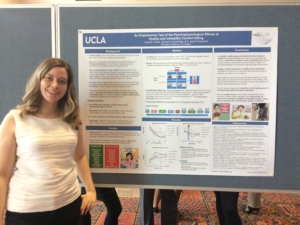
Laura Finch presenting her poster at the SPH Preconference.
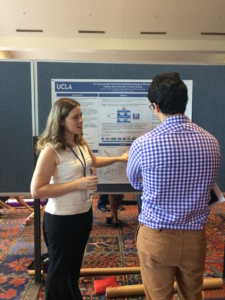
Laura Finch presenting her poster at the SPH Preconference.
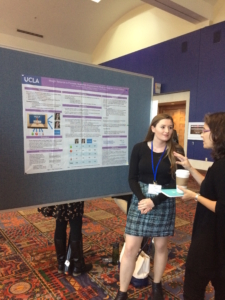
Erin Standen presenting her poster at the SPH Preconference.
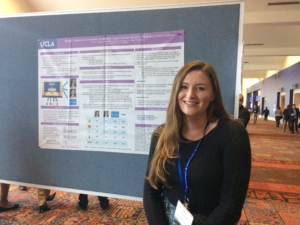
Erin Standen presenting her poster at the SPH Preconference.
Also on Thursday, DiSH Graduate student Jenna Cummings presented a poster as a part of the SPSP Graduate Student Poster Competition, and was named a Runner-up for the Award! We are so proud, especially because there were over two hundred posters in the competition! Congratulations, Jenna!
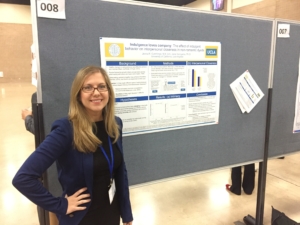
Jenna Cummings presenting her poster at SPSP for the Graduate Student Poster Competition.
On Friday and Saturday, DiSH Research Assistants Gracie Nguyen and Melissa Walman each presented a poster at the main SPSP Convention!
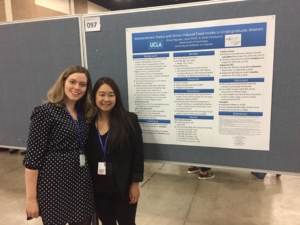
Gracie Nguyen and Laura Finch presenting a poster at the SPSP Convention.
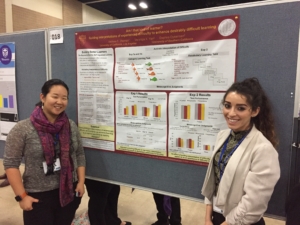
Melissa Walman presenting research at the SPSP Convention.
Overall, it was a great weekend in San Antonio, full of fascinating research, delicious food, and lots of DiSH Lab bonding! We can’t wait to head to Atlanta, GA for next year’s SPSP Convention!
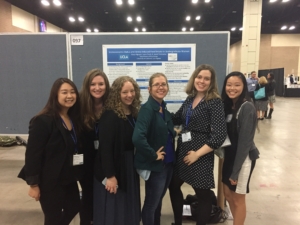
From left to right: Gracie Nguyen, Erin Standen, Dr. Mary Himmelstein, Jenna Cummings, Laura Finch, and Bernice Cheung at SPSP 2017.

